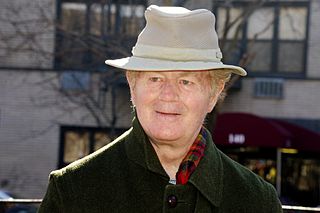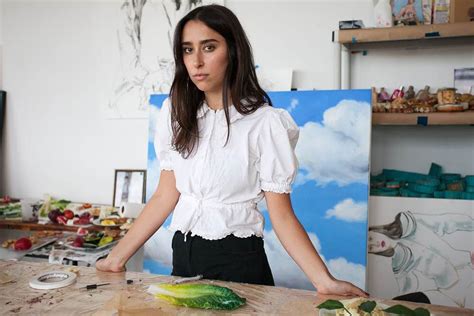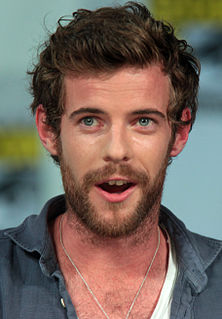A Quote by V. S. Pritchett
Among the masked dandies of Edwardian comedy, Max Beerbohm is the most happily armored by a deep and almost innocent love of himself as a work of art.
Related Quotes
Mr. Beerbohm in his way is perfect ... He has brought personality into literature, not unconsciously and impurely, but so consciously and purely that we do not know whether there is any relation between Max the essayist and Mr. Beerbohm the man. We only know that the spirit of personality permeates every word that he writes ... He is without doubt the prince of his profession.
He was prepared to die for it, as one of Baudelaire's dandies might have been prepared to kill himself in order to preserve himself in the condition of a work of art, for he wanted to make this experience a masterpiece of experience which absolutely transcended the everyday. And this would annihilate the effects of the cruel drug, boredom, to which he was addicted although, perhaps, the element of boredom which is implicit in an affair so isolated from the real world was its principle appeal for him.
[A] new generation, innocent of the divisions of the Cold War, this coming-of-age. ... If its members do not feel the urgency to escape the nuclear danger that some of its parents felt, neither has it developed the deep attachment to nuclear arms also often found among their parents, including most of the governing class. ... The call for abolition should therefore be, among other things, a call from an older generation to younger one.
My friends, when I was young, were always older than I was, and I've always liked them. And I love old men and old ladies, really. But I've known more elderly men, like Max Beerbohm, like Beranard Berenson, like Somerset Maugham, Winston Churchill-I'd put him first, anyway-what they say is so wise and so good. They know what they're talking about.
I think art is beautiful. It's decoration and adornment. But art is also a really important vessel for social change, and social change begins with thought. And so if you can find humor in something and take a moment to rethink it, you can take a step back and look at your values from a different angle. I think that's a really important way of carrying on with life. I think the best art for me is funny and the best comedy for me is art. Some of my favorite artists are comedians. Comedy is art, and art can be comedy, and the intersection is vital - at least for my own work.
...in spite of the deep-seated craving for love, almost everything else is considered to be more important than love: success, prestige, money, power-almost all our energy is used for the learning of how to achieve these aims, and almost none to learn the art of loving. Could it be that only those things are considered worthy of being learned with which one can earn money or prestige, and that love, which "only" profits the soul, but is profitless in the modern sense, is a luxury we have no right to spend energy on?
In most modern instances, interpretation amounts to the philistine refusal to leave the work of art alone. Real art has the capacity to make us nervous. By reducing the work of art to its content and then interpreting that, one tames the work of art. Interpretation makes art manageable, conformable.






































